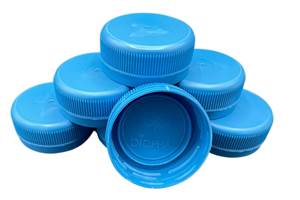Recycled Resin Prices Likely To Follow Same Pattern as 2015
Lower virgin resin prices held recycled prices down last year. This year is not expected to be much different.
While oil prices continue to decline, so do recycled materials prices, which has been the story for most of 2015. “We do have some applications where the end user mandates that so much PCR must be in their product, but that is only about 15% of our ´óĎó´«Ă˝. Eighty-five to 90% of what we sell is for the purpose of saving customers money. So as virgin prices have come down with oil prices, that has forced our prices down as well,” says one recycling industry source.
R-HDPE
The mixed-color market for bales has been very tight all year, industry observers say. They attribute that to one or two players that have built washing lines this year and have tried to fight their way into the marketplace. “Those bales are more expensive than they should be. Other than that, the market has been pretty healthy.”
Another supplier said the biggest event of 2015 was the falling prices of crude oil. That has made it more difficult for recycled prices to compete with virgin. Some MRFs reportedly have closed as a result. “It seems like we are always in tug of war, competing with wide-spec,” says one recycler.
All of those interviewed say, however, 2016 is expected to be a healthy year for recycled materials.
R-PP
Virgin PP prices plummeted in 2015, falling 30¢/lb. One seller of recycled resin said, “We had people anticipating lower prices every month until November, when virgin prices began to go up.” At the turn of the year, it was unclear if prices would go up farther, but sources said it was unlikely they would go down again in January unless oil prices hit $25. They were a little above $33 in the first week of the new year.
R-PET
Recycled PET prices were lower in 2015. Right now bale prices are up. In California, they were about 16.5¢/lb. Recycled resin suppliers cannot hike PCR prices at the same rate, sources say. Some suppliers expect PET prices to stabilize or rise some in 2016, but nothing dramatic is expected. One source said, “2016 is likely to be a mirror image of 2015. It’s always the same story: Prices go up and then hemorrhage because there is more supply than demand.”
For 2016, most industry observers say the R-PET supply/demand situation will be fairly balanced, “But 2017 is the year I am fretting about,” says another supplier, “because there is so much new virgin resin capacity scheduled to come on line, which could hold prices down.” Speaking of the new PET plant being built by M&G, he said, “You can go on Google Earth and look at this Corpus Christi plant scheduled to start up. It looks like a city. Projections are for 1 billion lb of PET to be made there.”
Related Content
PHA Compound Molded into “World’s First” Biodegradable Bottle Closures
Beyond Plastic and partners have created a certified biodegradable PHA compound that can be injection molded into 38-mm closures in a sub 6-second cycle from a multicavity hot runner tool.
Read MoreGeneral Polymers Thermoplastics to Further Expand Distribution Business
NPE2024: Following the company’s recent partnership buyout, new North American geographic territories are in its sight.
Read MoreDow, Circusil Collaborating on Silicone Recycling Facility
Dow and Circusil announced plans to construct a silicone recycling facility in Kentucky.
Read MoreLooking to Run More Regrind? PTXPO Workshop Tackles How
When it comes to making injection molding operations more sustainable, the lowest hanging fruit is the use of regrind, but that doesn’t mean it’s not without challenges.
Read MoreRead Next
Beyond Prototypes: 8 Ways the Plastics Industry Is Using 3D Printing
Plastics processors are finding applications for 3D printing around the plant and across the supply chain. Here are 8 examples to look for at NPE2024.
Read MoreMaking the Circular Economy a Reality
Driven by brand owner demands and new worldwide legislation, the entire supply chain is working toward the shift to circularity, with some evidence the circular economy has already begun.
Read MorePeople 4.0 – How to Get Buy-In from Your Staff for Industry 4.0 Systems
Implementing a production monitoring system as the foundation of a ‘smart factory’ is about integrating people with new technology as much as it is about integrating machines and computers. Here are tips from a company that has gone through the process.
Read More












